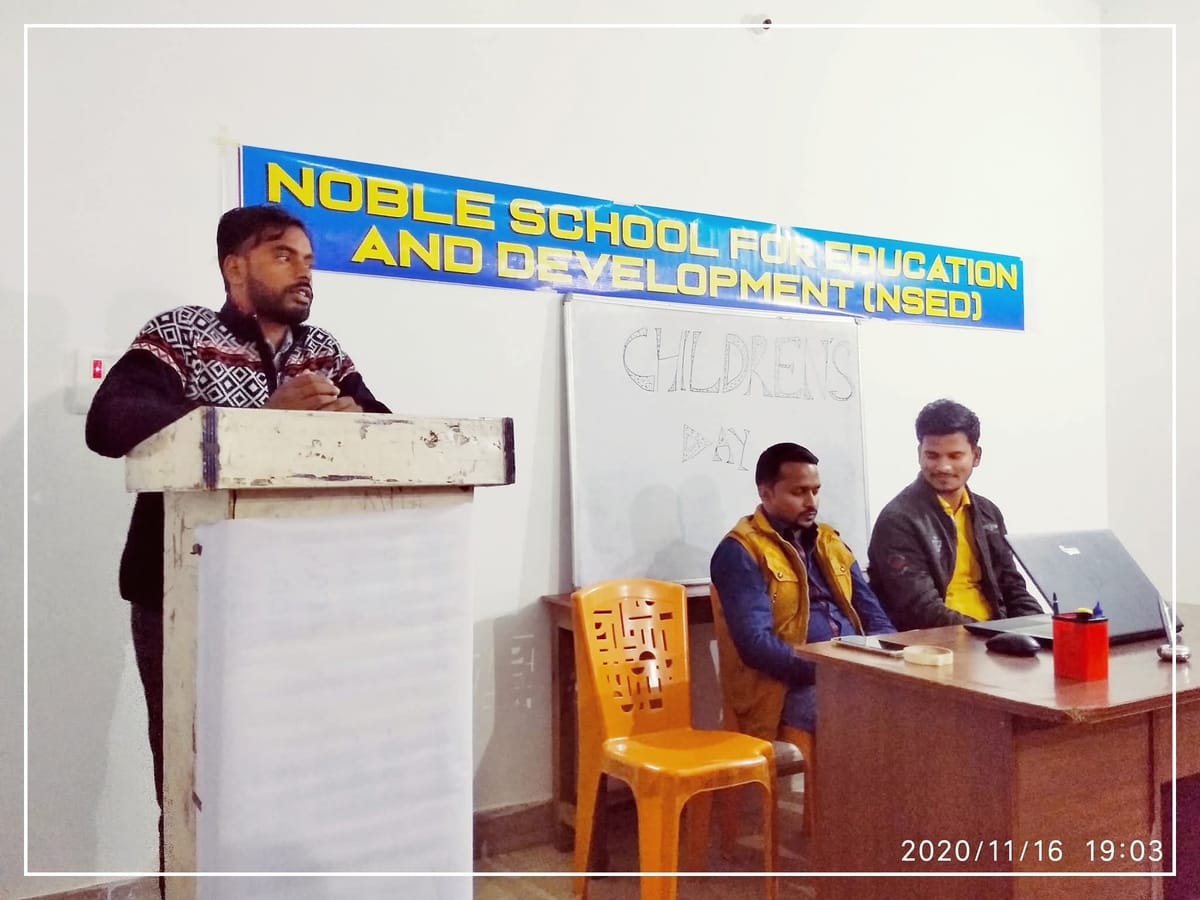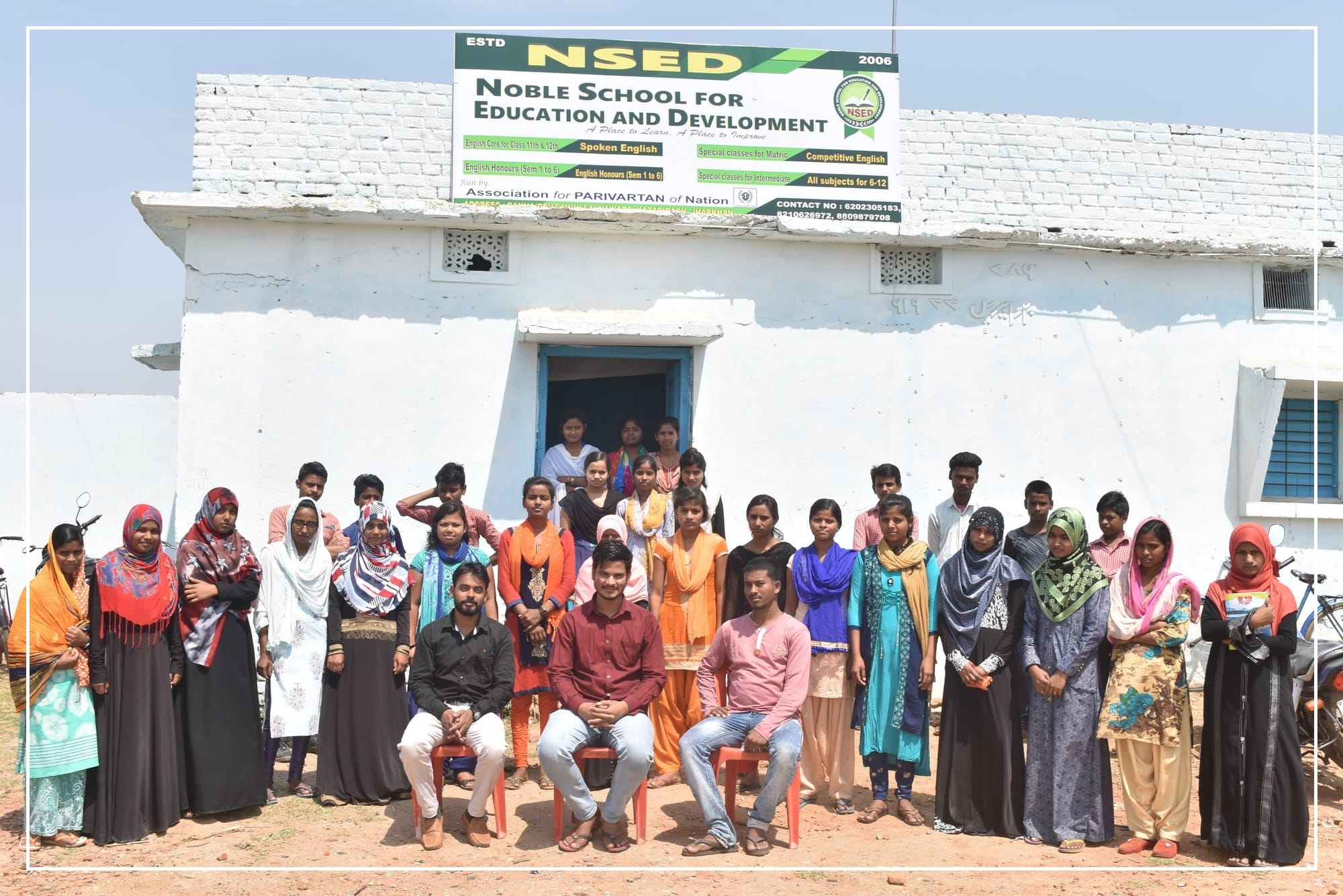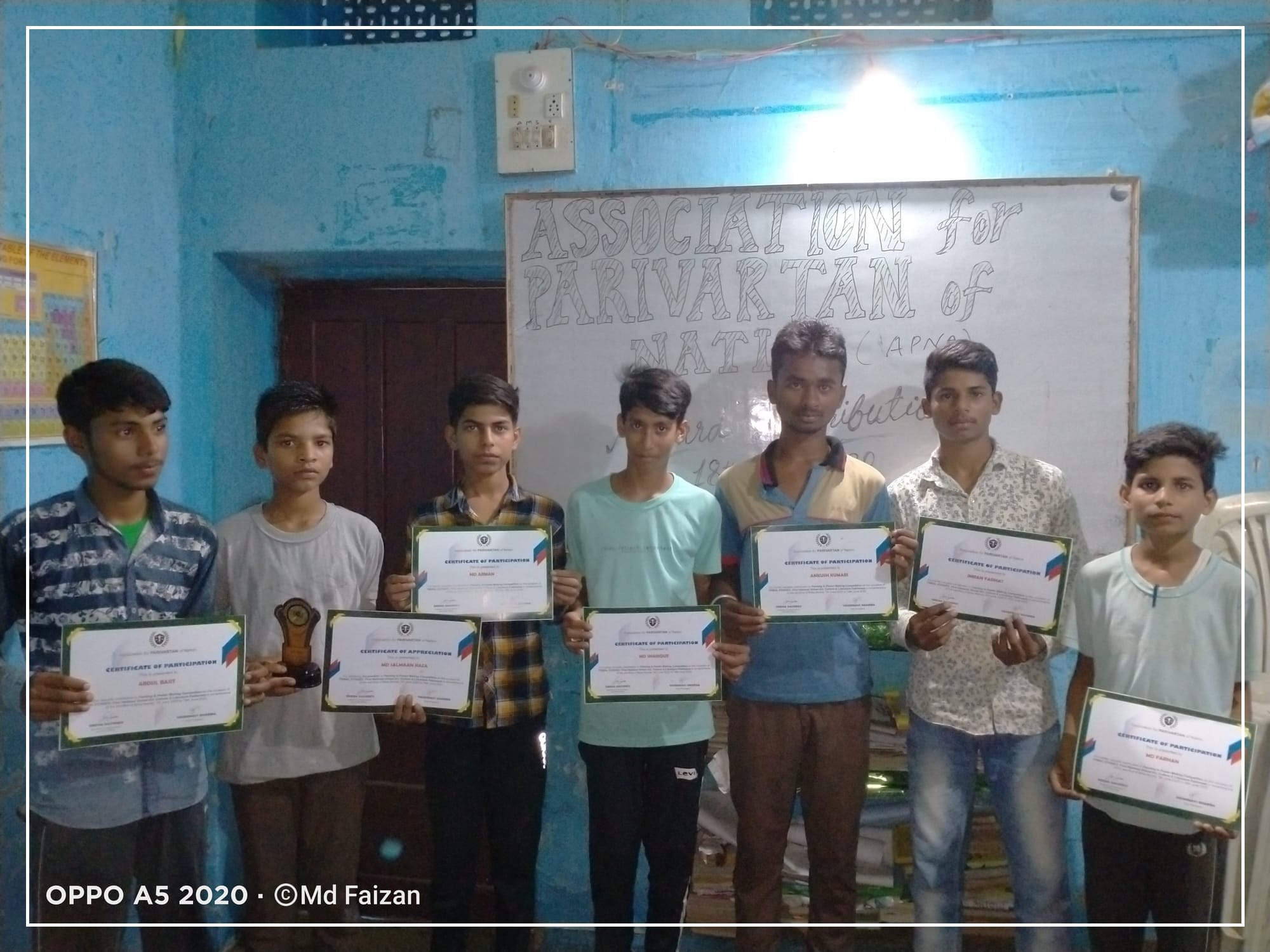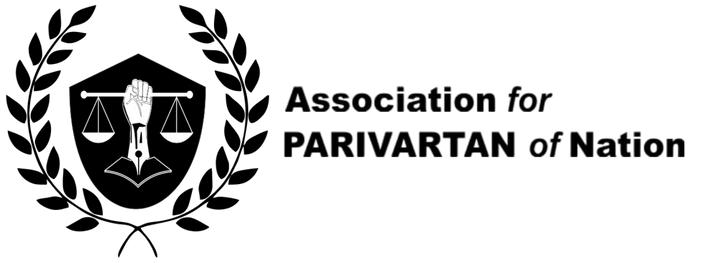Empowering Marginalised Children through Inclusive and Remedial Education in Banha Village, Jharkhand
APNA, inspired by SDG 4, runs the Noble School for Education and Development in Banha, Jharkhand. The school offers career guidance, digital literacy, and practical learning with activities beyond rote study. This has led to better attendance, parent support, and zero dropouts.

Enhancing Childhood through Training and Nurturing
The United Nations Sustainable Development Goal 4 (SDG 4) aims to ensure inclusive and equitable education and promote lifelong learning opportunities for all. However, more than one-third of the world’s malnourished children live in India, and over 70% of deaths in children under five in the country are linked to child and maternal malnutrition. 10.12 million child labourers are put to work in India for their daily bread and butter. 38.9% of all children within that age group are working instead of attending school. Taking inspiration from Sustainable Development Goal- 4, APNA imagines a socially conscious society wherein even the most marginalised community and its children can realise their dreams and strive for equality.

Keeping the mission to ensure inclusive and equitable quality of education in mind, APNA launched its flagship initiative, the “Noble School for Education and Development (NSED)” The programme provides career counselling, personality development, and digital literacy. A combined coaching centre and school has been established in Banha, Jharkhand, with the aim of equipping students with these essential life skills.
"Alongside our core academic work, we place strong emphasis on remedial learning, identifying individual learning gaps and providing tailored support to help students reach the academic level appropriate for their age. This includes personalised lesson plans, one-on-one mentoring, and small-group sessions designed to strengthen foundational literacy and numeracy skills. Our remedial approach ensures that no child is left behind, particularly those who may have missed formal schooling or struggled due to socio-economic challenges and the learning disruptions caused by the COVID-19 pandemic" — Hasan Al Banna, Founder of the Association for Parivartan of Nation.
The curriculum is designed and implemented in a manner that places greater emphasis on practical knowledge and skills, rather than purely theoretical learning. To better prepare students for real-life situations, we actively encourage their interest and enthusiasm in engaging with hands-on experiments and practical learning, rather than relying on rote memorisation of lengthy answers and paragraphs. Extracurricular activities are given equal priority alongside academic subjects, allowing students the opportunity to explore and nurture their other talents. The curriculum is highly flexible and offers balanced importance to all subjects, unlike many traditional Indian education systems.

The Director of the NSED, Md Raihan, shared, "We have successfully improved student attendance and parental involvement, resulting in zero dropouts. We firmly believe that every child possesses the potential to succeed in their own unique way. By offering equal opportunities, inclusive quality education, and supporting students in identifying their strengths, capabilities, and aspirations, we aim to nurture dynamic young leaders who will help transform our developing nation into a truly developed one."
